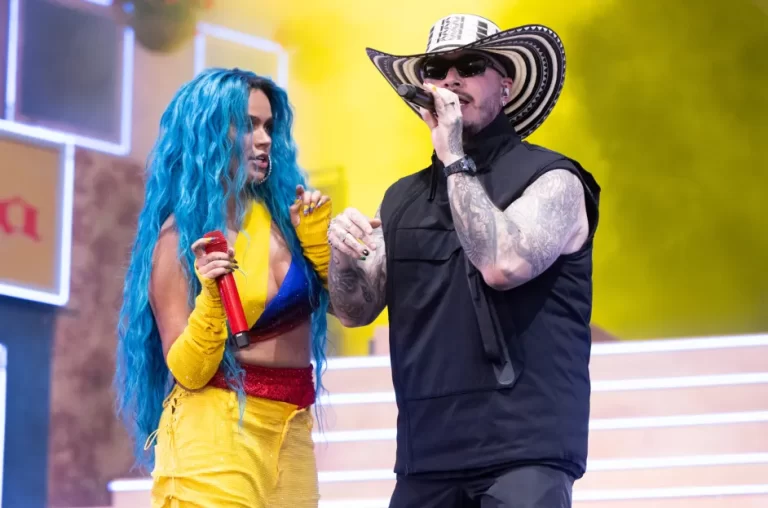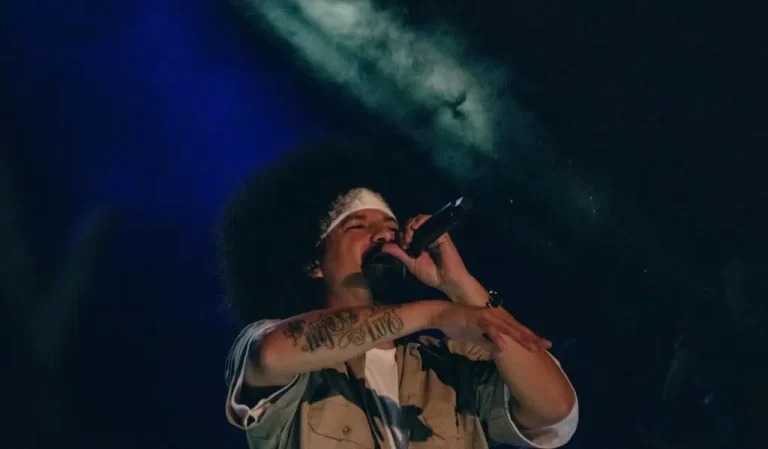
For some, music is a hobby. For others, like Colombian rapper Ephniko, it’s a life path—an art form that also teaches, connects cultures, and sparks critical thought.
Born in Barranquilla, Colombia, Ephniko moved to Florida at 14. His love for music began early, thanks to his uncle’s collection of cumbia and salsa records. Those vibrant rhythms shaped his youth, but once in the U.S., hip-hop captured his attention, becoming his creative home.
Blending music with education, he studied anthropology at Florida International University before committing fully to his music career. He took on the stage name Ephniko, short for “Eternally Producing History Never Ignoring Knowledge,” reflecting his mission to fuse art with awareness.
“People used to call me étnico because of my mixed influences—Colombian, Asian films, French cinema, and hip-hop style,” he explained. “In New York, étnico sometimes sounds like Ephniko, and that’s how the name was born.”
Ephniko has performed across Latin America—Mexico, Peru, Bolivia, Costa Rica, Venezuela, and his native Colombia—bringing his sound and message to diverse audiences. He’s been part of collectives like Nag Champayons, Overground, and Nativos, merging anthropology and music to create socially conscious art.
Behind the Beat
When asked about his creative process, Ephniko says it starts with curiosity and a love for unusual sounds.
“I’m always digging for unique combinations. Imagine a mariachi violin over dubstep bass,” he says with a grin. “I like breaking molds.”
His production style often blends 90s hip-hop structure with exotic sound textures. He layers samples, sequences tracks with fellow musicians, and builds lyrics loaded with metaphor and meaning.
“In New York, I’d sample beats on a machine, then build progressions with producers, adding quantized rhythms and automation to keep that raw hip-hop energy.”
Sound and Society
Ephniko’s taste spans everything from traditional Colombian rhythms to electronic and industrial sounds. Cumbia and salsa, rooted in nature and ancestral storytelling, still inspire his compositions.
“Cumbia’s African roots and salsa’s connection to Cuban and Afro rhythms share something with hip-hop—they were born out of struggle,” he explains. “After 2000, I got into more digital soundscapes. Now everyone’s phone makes noise. Sound reflects society, and society reflects sound.”
He believes today’s world—fast, chaotic, and deeply interconnected—produces new sonic textures that mirror how we live. Whether it’s train-inspired techno from Europe or beach-born salsa, the rhythm tells a deeper story.
Hip-Hop as Critique
Ephniko’s lyrics dive into social themes—race, inequality, colonialism—but his approach is both critical and introspective.
“I question everything. Literature and hip-hop taught me that,” he says. “Being conscious means being skeptical. You can’t accept things just because they’re ‘normal.’”
He sees music as a tool for awakening. His lyrics explore hidden histories and systemic issues, from institutional racism to untold cultural legacies. But these days, he also aims for more hope and healing.
“It’s not just about criticizing society,” he says. “Without inner change, there’s no real progress. Internal peace is essential for collective peace.”
Culture as Compass
Ephniko’s anthropological background shapes his worldview. For him, culture is the foundation of perception—how we define and understand the world around us.
“Culture forms your first lens. It’s how you make sense of a ‘bird,’ even if you don’t know its species,” he explains. “Language gives you the bricks to build your vision of the world.”
By combining rap, culture, and critical thinking, Ephniko continues to inspire and challenge audiences across borders. His music isn’t just sound—it’s a story, a question, and a conversation.






